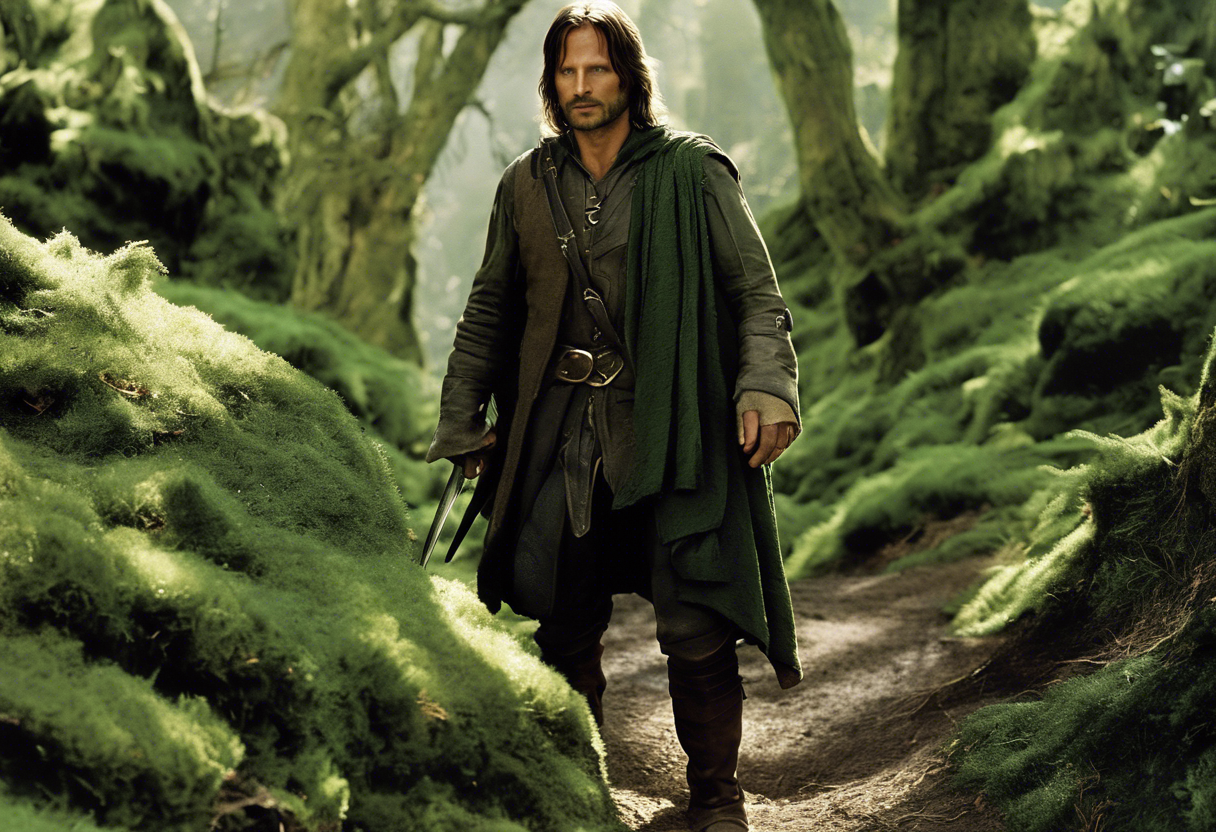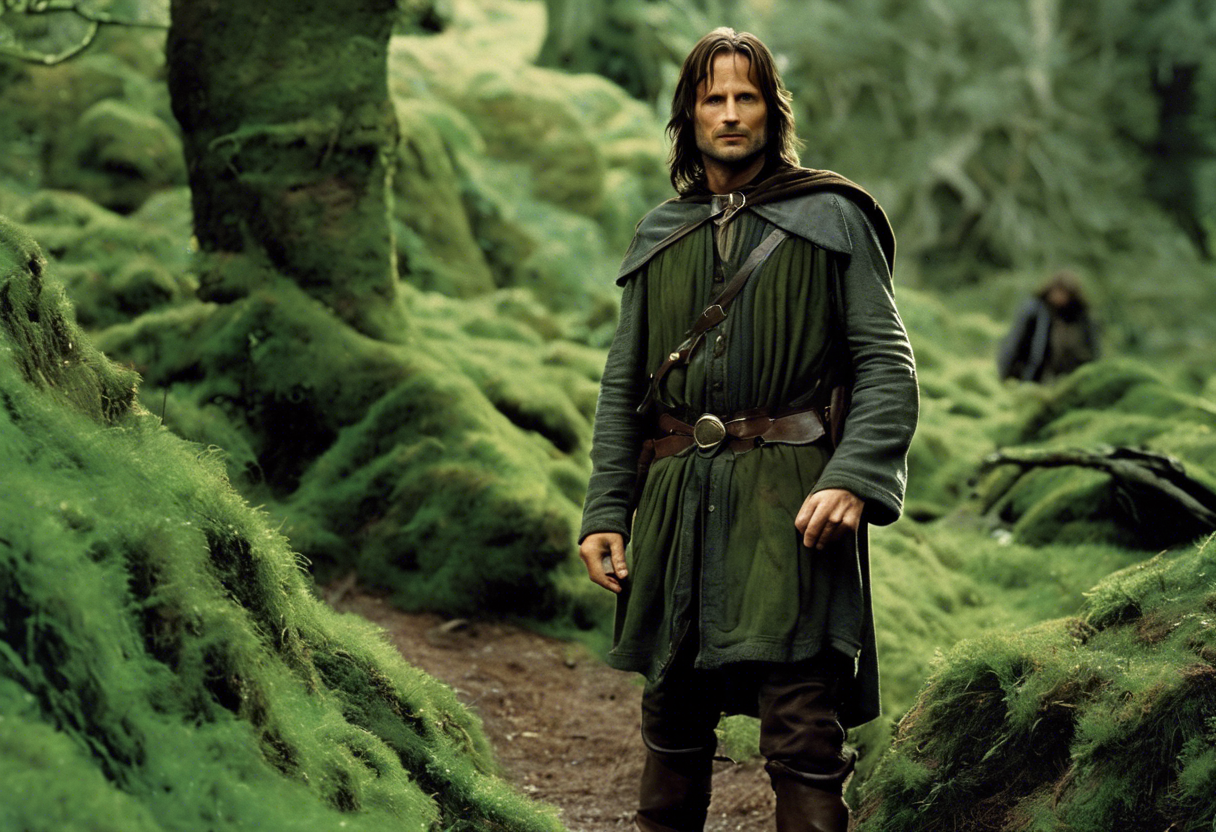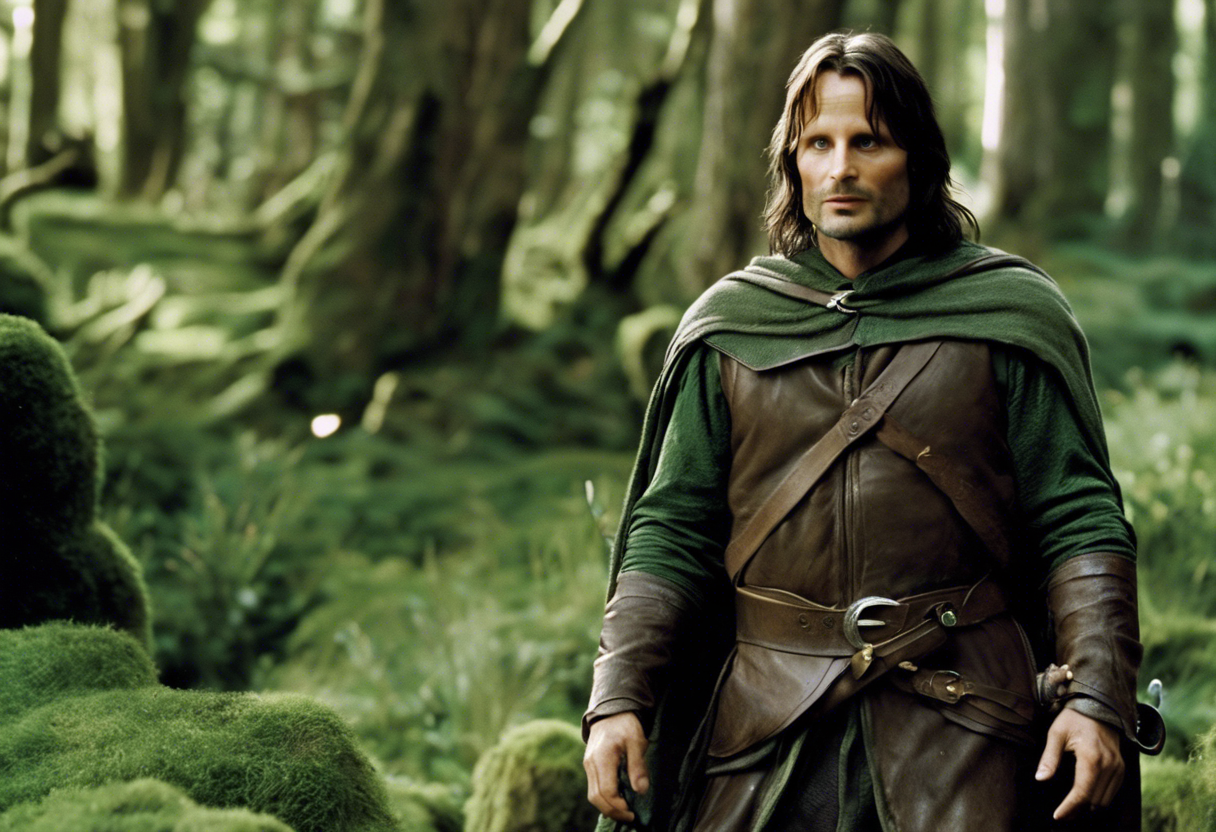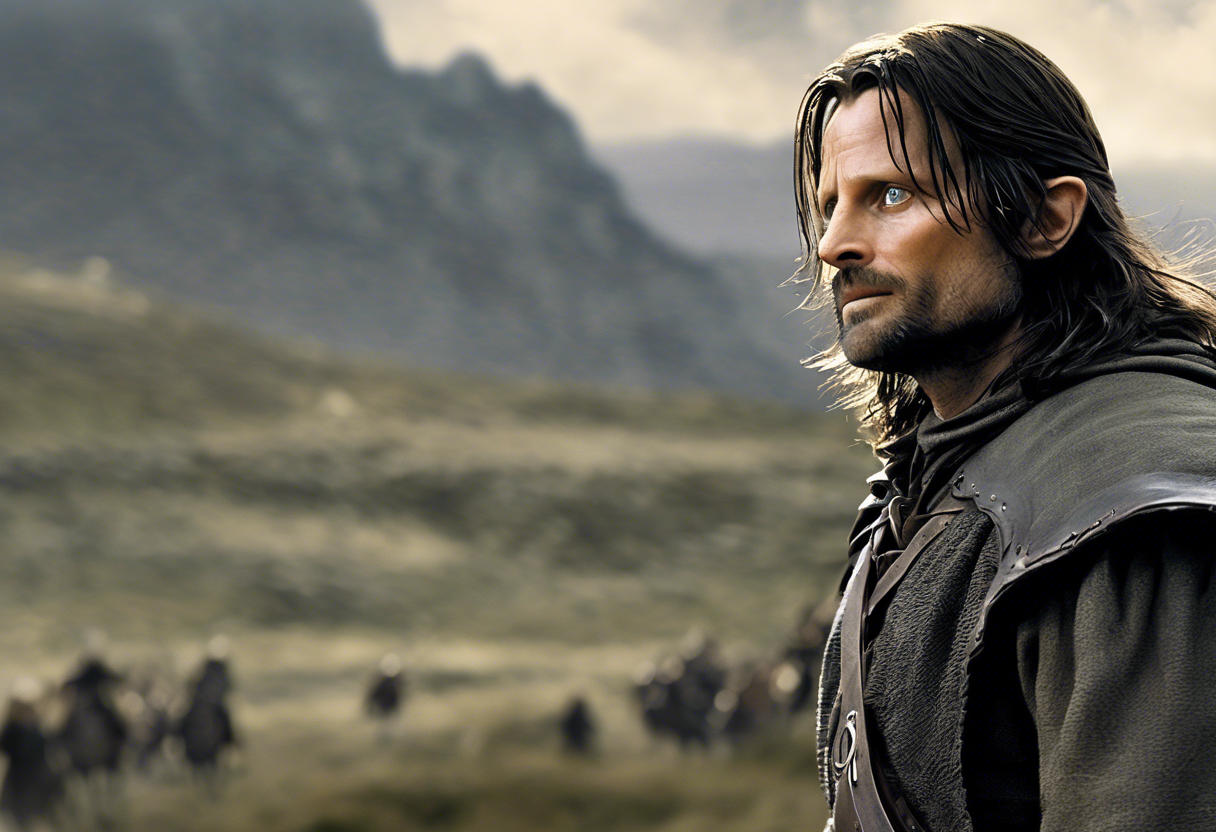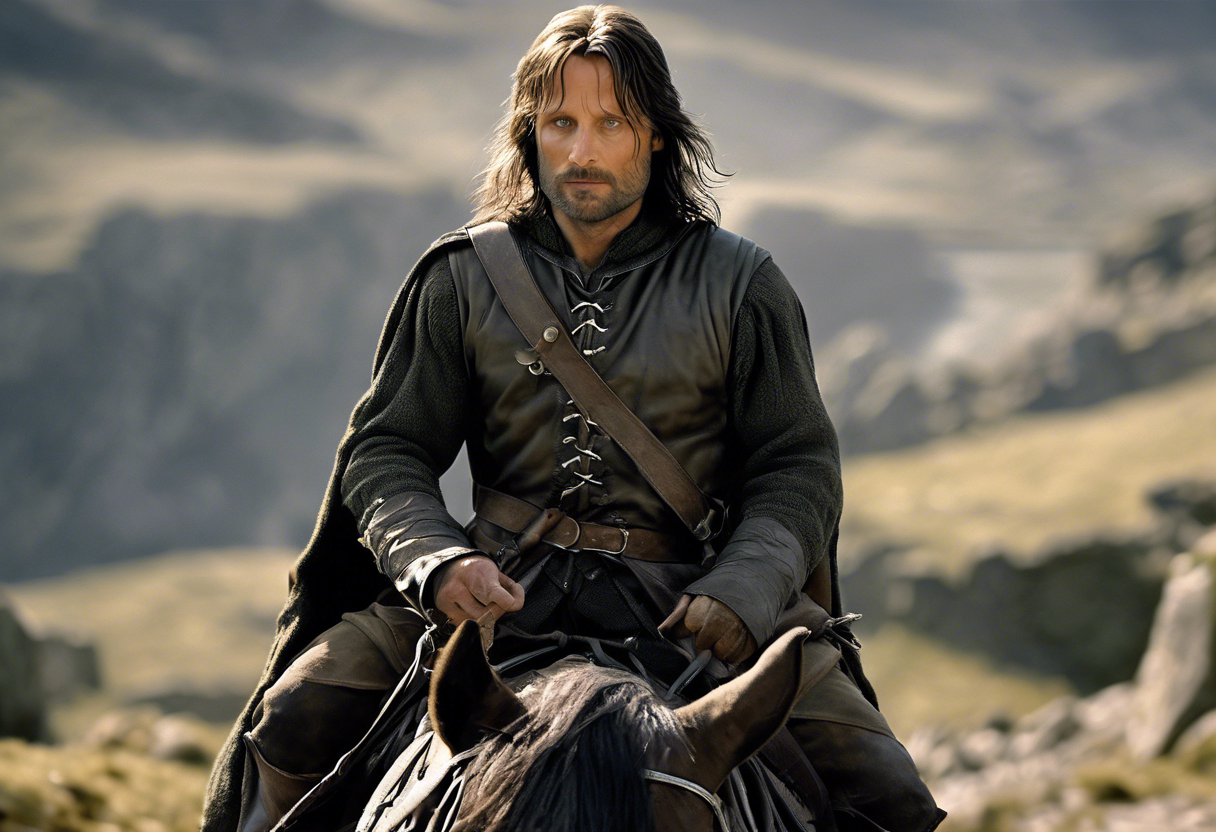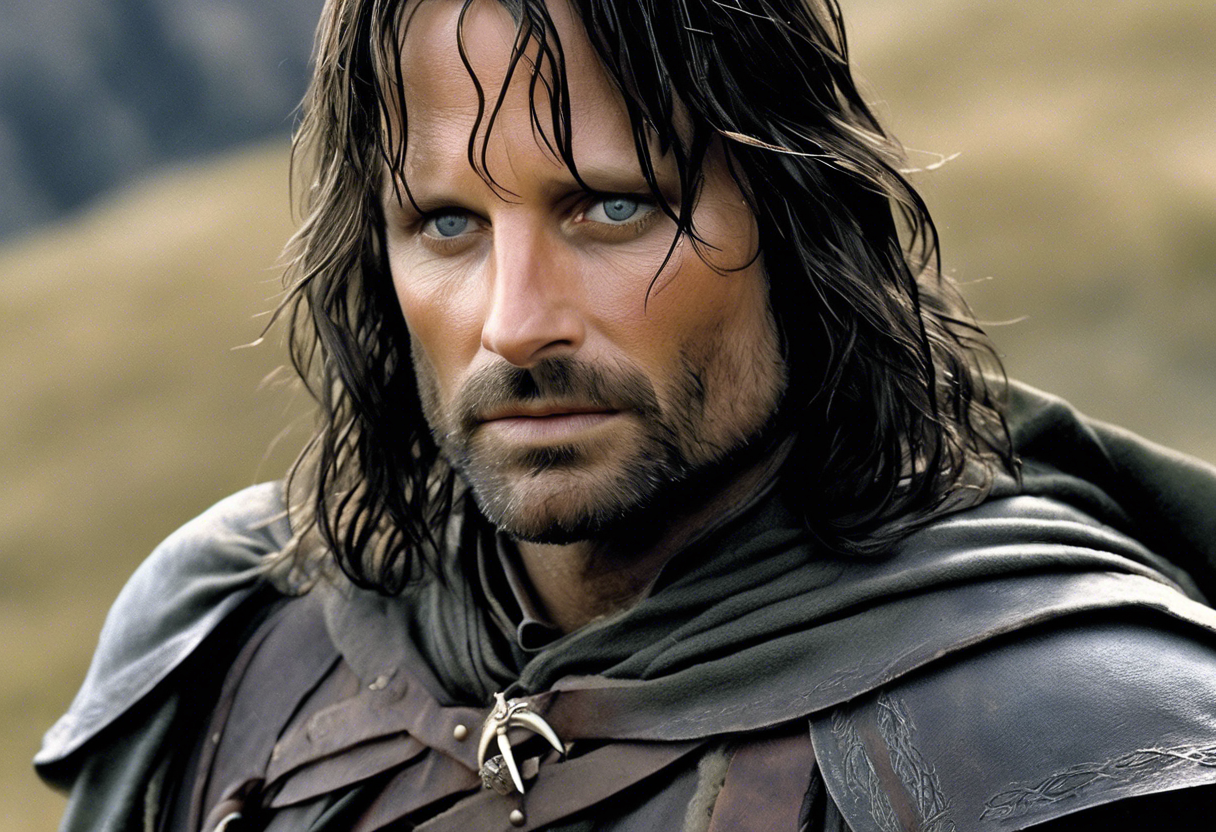Contents
Introduction
Aragorn, one of the central characters in J.R.R. Tolkien’s The Lord of the Rings, is a complex and multifaceted figure created by Tolkien’s rich imagination. Born as Aragorn son of Arathorn, he is the last Chieftain of the Dúnedain and the rightful heir to the thrones of Gondor and Arnor. Aragorn’s creation is deeply rooted in Tolkien’s extensive world-building, drawing from his experiences in World War I and his love for mythology and languages.
Aragorn’s backstory is marked by his lineage as a descendant of Isildur, the king who failed to destroy the One Ring, and his upbringing in Rivendell under the care of Elrond. This heritage and his experiences shape his defining traits: his humility, bravery, and unwavering commitment to justice. In the narrative of The Lord of the Rings, Aragorn plays a pivotal role as a member of the Fellowship of the Ring and ultimately as the King Elessar, leading the Free Peoples of Middle-earth against the darkness of Sauron’s rule.
Role in the Story
Aragorn’s journey in The Lord of the Rings is a transformative one, filled with significant decisions, relationships, and conflicts. Initially, he is introduced as Strider, a mysterious Ranger who guides Frodo Baggins and his companions through perilous lands. As the story unfolds, Aragorn reveals his true identity and assumes a leadership role within the Fellowship, demonstrating his bravery and strategic thinking.
One of the key events in Aragorn’s storyline is his encounter with Arwen, the immortal Elf-maiden, whom he loves. Their love is complicated by Elrond’s reluctance to allow their marriage until Aragorn becomes the King of both Gondor and Arnor, highlighting the themes of sacrifice and duty that Aragorn must navigate [1][2].
Aragorn’s military prowess is showcased in several battles, including the assault on Umbar, where he leads a successful campaign against the Corsairs, and his leadership in the War of the Ring, particularly during the Battle of Helm’s Deep and the Battle of the Pelennor Fields. His ability to rally the armies of Rohan and Gondor, and his confrontation with the spirits of the Oathbreakers, further underscore his growing role as a leader [1][2].
Character Analysis
Aragorn’s personality is a blend of strength, wisdom, and vulnerability. He possesses a strength of will that allows him to face daunting challenges, including confronting the spirit of Sauron through the palantir stone, a feat that would have driven a lesser person to madness [3].
Despite his impressive abilities and knowledge, Aragorn is humble and unassuming, preferring to be seen as a friend rather than a king. This humility is evident in his initial reluctance to reveal his true identity to the hobbits in Bree, reflecting his desire for genuine relationships rather than mere respect based on lineage [4].
Aragorn’s motivations are deeply rooted in his sense of duty and his desire to redeem his ancestor Isildur’s failure. He is haunted by the shadow of Isildur’s mistake and feels a personal responsibility to destroy the One Ring. This internal conflict makes him a more nuanced and relatable character, as he grapples with feelings of worthiness and the weight of his heritage [5].
His strengths include his exceptional skills as a Ranger and healer, which are invaluable to the Fellowship. He is also an inspiring leader who fights passionately alongside his followers and friends, earning their loyalty and respect [5].
However, Aragorn is not without flaws. He struggles with self-doubt and the fear of failure, particularly in the context of his leadership and his relationship with Arwen. These vulnerabilities make him more human and accessible to audiences, adding depth to his character [5].
Themes and Symbolism
Aragorn embodies several key themes in The Lord of the Rings, including the struggle between light and darkness, the importance of leadership and duty, and the concept of redemption. As the rightful king, Aragorn symbolizes the hope for a better future and the restoration of order in Middle-earth.
His journey from a humble Ranger to the King Elessar is a metaphor for personal growth and the acceptance of one’s destiny. The sword Anduril, given to him by Elrond, symbolizes his readiness to lead and his connection to his noble lineage [2].
Aragorn’s relationship with Arwen also symbolizes the theme of sacrifice and the choice between immortality and mortality. Arwen’s decision to renounce her Elvish lineage and accept mortality for the sake of her love for Aragorn underscores the power of love and the human condition [1].
Cultural Impact
Aragorn has had a significant cultural impact since the publication of The Lord of the Rings. In Peter Jackson’s film adaptations, Viggo Mortensen’s portrayal of Aragorn brought the character to life in a way that resonated deeply with audiences worldwide.
Aragorn’s influence can be seen in various forms of media and popular culture. He has inspired countless characters in fantasy literature and film, embodying the archetype of the heroic leader who rises from obscurity to greatness.
Fans have been particularly drawn to Aragorn’s complex character and his journey from a lone Ranger to a king. His story has inspired fan art, fan fiction, and discussions that delve into the depths of his character and the themes he represents.
Critical Reception
Critics and audiences have generally praised Aragorn’s character, highlighting his development from a mysterious figure to a confident leader. Viggo Mortensen’s performance in the film trilogy was particularly acclaimed, bringing a nuanced and compelling portrayal of Aragorn to the screen.
Some critics have noted that Aragorn’s character arc is one of the most satisfying aspects of the story, as he transitions from a reluctant leader to a confident king. However, there have also been discussions about the balance between his character development and the broader narrative, with some arguing that his transformation could have been more explicitly detailed [2][4].
Legacy
Aragorn’s enduring appeal lies in his multifaceted character and the universal themes he represents. He remains one of the most beloved characters in fantasy literature and film, inspiring new generations of readers and viewers.
His relevance in contemporary discussions is evident in the ongoing exploration of leadership, duty, and personal growth. Aragorn’s story continues to serve as a model for heroic narratives, influencing character archetypes in various forms of media.
In conclusion, Aragorn is a character whose depth and complexity have captivated audiences for decades. His journey, from the shadows of Middle-earth to the throne of Gondor, is a testament to the power of courage, duty, and the human spirit.
References
- https://en.wikipedia.org/wiki/Aragorn
- https://www.sparknotes.com/film/lordoftherings/character/aragorn/
- https://screenrant.com/unmistakable-aragorn-character-traits-lord-of-the-rings/
- https://www.sparknotes.com/lit/fellowship/character/aragorn/
- https://www.16personalities.com/articles/aragorn-a-kingly-servant-the-lord-of-the-rings-personality-series

